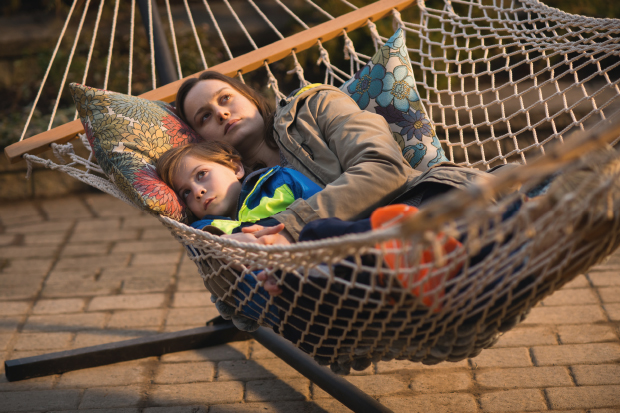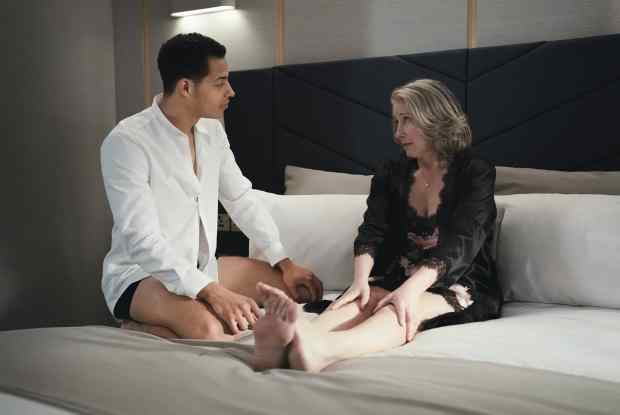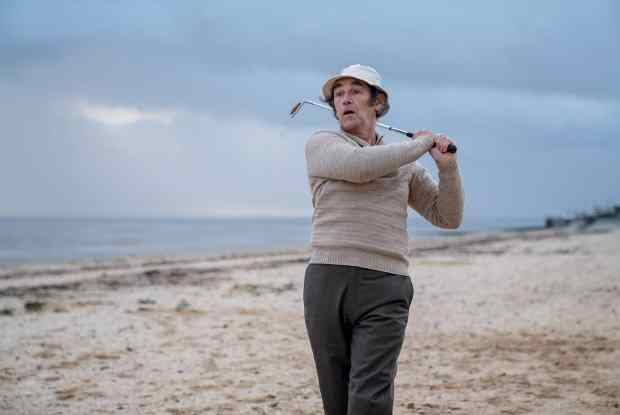This is the week of The Hateful Eight, the latest Quentin Tarantino film, but Tarantino being Tarantino, there were no screenings for reviewers, so I’ve yet to see it. There also seems to have been some falling out with the Cineworld, Picturehouse and Curzon chains such that their cinemas won’t be showing the film at all. Tarantino, such a pain, and if we were to meet, which I admit is unlikely —we move in very different circles — I would have no hesitation in telling him so. What’s he going to do? Slice off one of my ears, nail me to the wall with the other, stroll off to lunch, then come back and pump my chest full of bullets? On the other hand, I could just keep quiet, I suppose.
So, instead of The Hateful Eight, I offer you Room, which isn’t out until next week, but there’s nothing much else around, so you’re just going to have to live with it. Room is based on the 2010 novel by Emma Donoghue, which was a literary sensation and, unlike Gone Girl, say, was seriously terrific. In a perfect world you would come to Room in a state of complete innocence — why are Ma and Jack in this room? — but the world isn’t perfect, so I’ll tell you: this mother and her young son have been imprisoned by an abductor and the boy, who is now five, and was born in ‘room’, knows nothing else. I have read the book, which is a pity, as I can’t now unread it, and in some ways this doesn’t quite match up. But, that said, it is probably good enough, and given the complex and difficult material, as good as you might hope for.
With a screenplay by Donoghue and directed by Lenny Abrahamson (Adam &Paul, Frank), it opens with Ma (Brie Larson) and Jack (Jacob Tremblay) in ‘room’, which is effectively a reinforced shed, on his fifth birthday. Room is 10ft by 10ft and it is Jack’s entire universe. ‘Hello, lamp,’ he says every morning. ‘Hello, table. Hello, sink. Hello, wardrobe’. Jack is lively and curious and sometimes annoying, as five-year-olds are. Over the years, Ma has come up with all sorts of ways to amuse him. They draw and read and talk and do their keep fit exercises. At night, she is sometimes visited by Old Nick (Sean Bridgers), her kidnapper and rapist. Old Nick is kept at arm’s length narratively, as this is not his story; this is not John Fowles’s The Collector. Room, in fact, reminded me most of Cormac McCarthy’s The Road, but with the mother-child bond being taken to harrowing extremes rather than the father-child one.
Their situation changes when Old Nick says he’s lost his job and may have to sell the house, and as he’ll likely murder them rather than set them free, Ma decides they must escape. To this end, Ma has to tell Jack the truth about a world he never even knew existed, and Jack must be made to believe her. Their lives depend on it, so these scenes are filled with suspense, urgency and desperation. Room, in fact, becomes as tense as any crime thriller at the midway mark, but then the story takes a different turn, which I won’t describe here, but from then on it does descend into more familiar, more sentimental, more plodding storytelling, with violins.
The film derives much of its power, during the times it is powerful, from its central performances. Larson is both fragile and ferocious, and her performance feels piercingly true, while Tremblay displays a naturalness that is miraculous, and probably wasn’t learned at the Italia Conti Academy. (I don’t know that for sure. It’s just a feeling I have.)
But, overall, this lacks the emotional force of the novel, because the point of view has been changed. The novel is narrated by Jack, and it’s the way Donoghue captured the voice of such a small child, and so brilliantly evoked his headspace, that made it so poignant and enthrallingly special. This, having been put in the third person, so to speak, lacks that poignancy and enthralling specialness. I found I missed Jack, along with his whimsy and humour, of which there is almost none.
Still, this is good enough, like I said, and although it sounds like a hard watch and a gruesome watch, there is also joy and exhilaration, and the underlying sense is always one of compassion and humanity. So, quite unlike Tarantino. The creep.
Got something to add? Join the discussion and comment below.
Get 10 issues for just $10
Subscribe to The Spectator Australia today for the next 10 magazine issues, plus full online access, for just $10.
You might disagree with half of it, but you’ll enjoy reading all of it. Try your first month for free, then just $2 a week for the remainder of your first year.














Comments
Don't miss out
Join the conversation with other Spectator Australia readers. Subscribe to leave a comment.
SUBSCRIBEAlready a subscriber? Log in